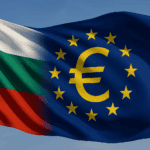On January 1, 2025, Bulgaria will join the Schengen Area, marking a significant milestone for the country and ushering in a new era of travel, business, and investment opportunities within Europe. From enhanced mobility and simplified border controls to fresh incentives for foreign entrepreneurs and digital nomads, this change carries notable implications for a wide range of individuals, including non-EU professionals, non-EU citizens, and location-independent workers.
Below, we explore how Bulgaria’s Schengen Membership will reshape the landscape for various groups, what new opportunities it creates, and what regulations and requirements must be kept in mind as this transition takes place.
General Changes and Benefits
1.Enhanced Mobility:
With Bulgaria entering the Schengen Area, holders of Bulgarian residence permits can enjoy visa-free travel across 29 Schengen countries. This streamlined mobility removes the need for separate visas when crossing European borders for short stays—up to 90 days in any 180-day period. For digital nomads, investors, and professionals, it means easier access to Europe’s vibrant business hubs, cultural destinations, and networking opportunities.
2.Economic Impact:
Schengen membership is expected to boost Bulgaria’s economic growth by attracting more foreign investment and promoting cross-border operations. Businesses established in Bulgaria will find it easier to trade goods and services throughout the EU, while investors can capitalize on reduced regulatory hurdles and improved trust within the European market.
Bulgaria Schengen Membership: Benefits for Digital Nomads and Remote Workers
For digital nomads and remote workers, Bulgaria’s strategic location and relatively low cost of living have long made it a popular base. Now, Schengen membership adds a valuable layer of convenience and opportunity.
1.Visa and Residence Options:
Trade Representative Office (TRO) Route:
Already a cost-effective way for foreign companies to gain Bulgarian residence, the TRO model allows up to three representatives to obtain residence permits. This makes Bulgaria an attractive operational base, from which remote workers can travel freely within the Schengen Area.
Potential Digital Nomad Visa:
While Bulgaria does not yet have a dedicated digital nomad visa, it may follow the lead of other Schengen nations that offer tailored visas for location-independent workers. A future digital nomad visa would likely simplify the process of obtaining legal status and extend benefits like easier market access, healthcare options, and smoother tax arrangements.
2.Benefits of Bulgarian Residence for Nomads:
Residents not only gain Schengen-wide travel privileges but can also potentially work toward long-term or permanent EU residence after five years. This long-term outlook makes Bulgaria an appealing choice for digital nomads who want stability and growth opportunities in Europe
Non-EU Entrepreneurs and Investors
For non-EU entrepreneurs, start-ups, and investors, Bulgaria’s entry into the Schengen Area can serve as a stepping stone into the broader European market.
1.Investment Opportunities:
A minimum investment of BGN 1,000,000 (approximately €512,000) into approved Bulgarian investment funds can lead to permanent residence, connecting investors with the entire EU market. This is an inviting proposition for those looking to establish a European presence quickly and efficiently.
2.Business Benefits:
Bulgarian-based companies can now tap into Europe’s extensive network with fewer administrative obstacles. Simplified cross-border operations, predictable tax frameworks, and expanded market reach combine to make Bulgaria a highly strategic base for companies interested in scaling across Europe.
3.Considerations for Non-EU Investors:
Entrepreneurs must remain mindful of compliance with Bulgarian and EU laws, be aware of potential double taxation issues, and ensure they meet any work permit requirements. Proper legal guidance and forward planning are essential.
Non-EU Citizens
1.Travel Changes for Short Stays:
Visa-Free Entry: Non-EU citizens can continue to enter the Schengen Area (including Bulgaria) without a visa for short stays, up to 90 days within any 180-day period.
ETIAS Requirement: From mid-2025, non-EU citizens will need to obtain ETIAS authorization to enter the Schengen Area. This digital travel permit adds a layer of security screening and is expected to be relatively straightforward to obtain online.
Passport Validity: Non-EU citizens must ensure their passports are valid for at least three months beyond their planned departure date.
2.Business and Work Considerations:
While short business trips become simpler,non-EU citizens who wish to work, invest, or stay longer than 90 days must secure the appropriate visa or residence permit. Schengen membership does not waive the requirement for work permits or alter the legal framework for long-term stays—these regulations remain in effect.
3.Health Insurance and Residency Needs:
Proof of health insurance coverage may be requested upon entry, and longer stays require the appropriate documentation and permission, whether in Bulgaria or elsewhere in the Schengen Area.
Differences for Non-EU Citizens with and without Bulgarian residency
With Bulgarian residency:
Holding Bulgarian residency opens the door to near-seamless travel within the Schengen Area for up to 90 days in any 180-day period. It also creates a path toward permanent residence or EU long-term residence, providing a stable footing for pursuing new business ventures or extended stays in Europe.
Without Bulgarian residency:
Non-EU citizens without Bulgarian residency remain subject to standard Schengen rules, including the 90-day limit for short stays. They must also obtain relevant visas and permits for any long-term work or investment plans. Entry checks may be more thorough for those without established ties to Bulgaria.
Key Takeaways
1.Enhanced Mobility:
Bulgaria’s Schengen membership dramatically improves travel and short-term stay options, making it easier for residents and visitors to move around Europe.
2.Business Opportunities:
The shift strengthens Bulgaria’s role as a gateway to the European market, simplifying cross-border operations and investment endeavors.
3.Digital Nomad Friendly:
The combination of lower living costs, emerging visa frameworks, and unrestricted travel within the Schengen Area will likely increase Bulgaria’s appeal to remote workers.
4.Non-EU Citizens Considerations:
U.S. citizens should remain attentive to upcoming ETIAS requirements, the Schengen 90-day rule, and the documentation needed for longer stays or professional engagements.
5.Regulatory Awareness:
It’s crucial for all parties—nomads, entrepreneurs, and non-EU citizens—to stay informed about EU regulations, tax implications, and changing visa requirements as Bulgaria’s membership takes effect.
6.Economic Impact:
The anticipated economic boost should create more opportunities for residents and foreign nationals alike, fostering an environment conducive to innovation, growth, and mutually beneficial partnerships.
Bulgaria’s accession to the Schengen Area on January 1, 2025, represents a pivotal shift, promising greater mobility, market access, and international opportunities. For digital nomads, non-EU entrepreneurs, and non-EU citizens, it offers a wealth of advantages—provided they carefully navigate the accompanying regulations and requirements. As this new chapter begins, individuals and businesses willing to stay informed and plan ahead stand to benefit most from the evolving European landscape.





